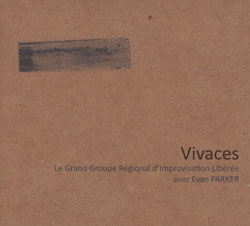
Le Grand Groupe Regional d'Improvisation Liberee (GGRIL) of the St. Lawrence region is conducted by British saxophonist Evan Parker in this live concert held in Rimouski after a workshop hosted by Evan Parker.
In Stock
Quantity in Basket: None
Log In to use our Wish List
Shipping Weight: 3.00 units
EU & UK Customers:
Discogs.com can handle your VAT payments
So please order through Discogs
Sample The Album:
Evan Parker-soprano saxophone, tenor saxophone, conductor
Raphael Arsenault-violin
Catherine S. Massicotte-violin
Antoine Letourneau-Berger-percussion, clarinet
Olivier D'Amours-electric guitar
Robert Bastien-electric guitar
Eric Normand-electric bass
Brigitte Lacasse-accordion
Robin Servant-accordion
Luke Dawson-contrabass
Gabriel Rivest-tuba
Scott Thomson-trombone
Click an artist name above to see in-stock items for that artist.
Label: Tour de Bras
Catalog ID: TDB 9006
Squidco Product Code: 16279
Format: CD
Condition: New
Released: 2012
Country: Canada
Packaging: Digipack
Recorded live in concert on April 18th, 2011 in Rimouski, Quebec.
"GGRIL [Le Grand Groupe Regional d'Improvisation Libérée] launches Vivaces, recorded concert conducted by famous British saxophone player Evan Parker. Going for seven years now, ''Le GGRIL'' is Tour de Bras' home big band, based in Rimouski, Québec, located hundreds kilometers east from urban centers. GGRIL is an eclectic reunion of improvisation enthusiasts from a large array of ages and musical traditions. The band features a dozen musicians living in Lower St-Lawrence region. They worked with various guest directors such as Jean Derome, Joëlle Léandre, Danielle P. Roger, etc.
Vivaces was recorded live from a concert held in Rimouski after a short workshop hosted by Evan Parker. The CD presents the music as played - without any editing - in order to preserve spontaneity from the meeting. Conductors Evan Parker and Raphaël Arsenault created mass movements using simple gesture in a largely freely improvised creation. This free act is a first release from Le GGRIL, who promises to come back soon. Evan Parker is a British free-improvising saxophone player from the European free jazz scene.
Recording and performing prolifically with many collaborators, Parker was a pivotal figure in the development of European free jazz and free improvisation, and has pioneered or substantially expanded an array of extended techniques. Critic Ron Wynn describes Parker as "[a]mong Europe's most innovative and intriguing saxophonists ... his solo sax work isn't for the squeamish." "-Tour de Bras

The Squid's Ear!
Artist Biographies
• Show Bio for Evan Parker "Evan Parker was born in Bristol in 1944 and began to play the saxophone at the age of 14. Initially he played alto and was an admirer of Paul Desmond; by 1960 he had switched to tenor and soprano, following the example of John Coltrane, a major influence who, he would later say, determined "my choice of everything". In 1962 he went to Birmingham University to study botany but a trip to New York, where he heard the Cecil Taylor trio (with Jimmy Lyons and Sunny Murray), prompted a change of mind. What he heard was "music of a strength and intensity to mark me for life ... l came back with my academic ambitions in tatters and a desperate dream of a life playing that kind of music - 'free jazz' they called it then." Parker stayed in Birmingham for a time, often playing with pianist Howard Riley. In 1966 he moved to London, became a frequent visitor to the Little Theatre Club, centre of the city's emerging free jazz scene, and was soon invited by drummer John Stevens to join the innovative Spontaneous Music Ensemble which was experimenting with new kinds of group improvisation. Parker's first issued recording was SME's 1968 Karyobin, with a line-up of Parker, Stevens, Derek Bailey, Dave Holland and Kenny Wheeler. Parker remained in SME through various fluctuating line-ups - at one point it comprised a duo of Stevens and himself - but the late 1960s also saw him involved in a number of other fruitful associations. He began a long-standing partnership with guitarist Bailey, with whom he formed the Music Improvisation Company and, in 1970, co-founded Incus Records. (Tony Oxley, in whose sextet Parker was then playing, was a third co-founder; Parker left Incus in the mid-1980s.) Another important connection was with the bassist Peter Kowald who introduced Parker to the German free jazz scene. This led to him playing on Peter Brötzmann's 1968 Machine Gun, Manfred Schoof's 1969 European Echoes and, in 1970, joining pianist Alex von Schlippenbach and percussionist Paul Lovens in the former's trio, of which he is still a member: their recordings include Pakistani Pomade, Three Nails Left, Detto Fra Di Noi, Elf Bagatellen and Physics. Parker pursued other European links, too, playing in the Pierre Favre Quartet (with Kowald and Swiss pianist Irene Schweizer) and in the Dutch Instant Composers Pool of Misha Mengelberg and Han Bennink. The different approaches to free jazz he encountered proved both a challenging and a rewarding experience. He later recalled that the German musicians favoured a "robust, energy-based thing, not to do with delicacy or detailed listening but to do with a kind of spirit-raising, a shamanistic intensity. And l had to find a way of surviving in the heat of that atmosphere ... But after a while those contexts became more interchangeable and more people were involved in the interactions, so all kinds of hybrid musics came out, all kinds of combinations of styles." A vital catalyst for these interactions were the large ensembles in which Parker participated in the 1970s: Schlippenbach's Globe Unity Orchestra, Chris McGregor's Brotherhood of Breath, Barry Guy's London Jazz Composers Orchestra (LJCO) and occasional big bands led by Kenny Wheeler. In the late 70s Parker also worked for a time in Wheeler's small group, recording Around Six and, in 1980, he formed his own trio with Guy and LJCO percussionist Paul Lytton (with whom he had already been working in a duo for nearly a decade). This group, together with the Schlippenbach trio, remains one of Parker's top musical priorities: their recordings include Tracks, Atlanta, Imaginary Values, Breaths and Heartbeats, The Redwood Sessions and At the Vortex. In 1980, Parker directed an Improvisers Symposium in Pisa and, in 1981, he organised a special project at London's Actual Festival. By the end of the 1980s he had played in most European countries and had made various tours to the USA, Canada, Australia, New Zealand and Japan. ln 1990, following the death of Chris McGregor, he was instrumental in organising various tributes to the pianist and his fellow Blue Notes; these included two discs by the Dedication Orchestra, Spirits Rejoice and lxesa. Though he has worked extensively in both large and small ensembles, Parker is perhaps best known for his solo soprano saxophone music, a singular body of work that in recent years has centred around his continuing exploration of techniques such as circular breathing, split tonguing, overblowing, multiphonics and cross-pattern fingering. These are technical devices, yet Parker's use of them is, he says, less analytical than intuitive; he has likened performing his solo work to entering a kind of trance-state. The resulting music is certainly hypnotic, an uninterrupted flow of snaky, densely-textured sound that Parker has described as "the illusion of polyphony". Many listeners have indeed found it hard to credit that one man can create such intricate, complex music in real time. Parker's first solo recordings, made in 1974, were reissued on the Saxophone Solos CD in 1995; more recent examples are Conic Sections and Process and Reality, on the latter of which he does, for the first time, experiment with multi-tracking. Heard alone on stage, few would disagree with writer Steve Lake that "There is, still, nothing else in music - jazz or otherwise - that remotely resembles an Evan Parker solo concert." While free improvisation has been Parker's main area of activity over the last three decades, he has also found time for other musical pursuits: he has played in 'popular' contexts with Annette Peacock, Scott Walker and the Charlie Watts big band; he has performed notated pieces by Gavin Bryars, Michael Nyman and Frederic Rzewski; he has written knowledgeably about various ethnic musics in Resonance magazine. A relatively new field of interest for Parker is improvising with live electronics, a dialogue he first documented on the 1990 Hall of Mirrors CD with Walter Prati. Later experiments with electronics in the context of larger ensembles have included the Synergetics - Phonomanie III project at Ullrichsberg in 1993 and concerts by the new EP2 (Evan Parker Electronic Project) in Berlin, Nancy and at the 1995 Stockholm Electronic Music Festival where Parker's regular trio improvised with real-time electronics processed by Prati, Marco Vecchi and Phillip Wachsmann. "Each of the acoustic instrumentalists has an electronic 'shadow' who tracks him and feeds a modified version of his output back to the real-time flow of the music." The late 80s and 90s brought Parker the chance to play with some of his early heroes. He worked with Cecil Taylor in small and large groups, played with Coltrane percussionist Rashied Ali, recorded with Paul Bley: he also played a solo set as support to Ornette Coleman when Skies of America received its UK premiere in 1988. The same period found Parker renewing his acquaintance with American colleagues such as Anthony Braxton, Steve Lacy and George Lewis, with all of whom he had played in the 1970s (often in the context of London's Company festivals). His 1993 duo concert with Braxton moved John Fordham in The Guardian to raptures over "saxophone improvisation of an intensity, virtuosity, drama and balance to tax the memory for comparison". Parker's 50th birthday in 1994 brought celebratory concerts in several cities, including London, New York and Chicago. The London performance, featuring the Parker and Schlippenbach trios, was issued on a highly-acclaimed two-CD set, while participants at the American concerts included various old friends as well as more recent collaborators in Borah Bergman and Joe Lovano. The NYC radio station WKCR marked the occasion by playing five days of Parker recordings. 1994 also saw the publication of the Evan Parker Discography, compiled by ltalian writer Francesco Martinelli, plus chapters on Parker in books on contemporary musics by John Corbett and Graham Lock. Parker's future plans involve exploring further possibilities in electronics and the development of his solo music. They also depend to a large degree on continuity of the trios, of the large ensembles, of his more occasional yet still long-standing associations with that pool of musicians to whose work he remains attracted. This attraction, he explained to Coda's Laurence Svirchev, is attributable to "the personal quality of an individual voice". The players to whom he is drawn "have a language which is coherent, that is, you know who the participants are. At the same time, their language is flexible enough that they can make sense of playing with each other ... l like people who can do that, who have an intensity of purpose." " ^ Hide Bio for Evan Parker • Show Bio for Catherine S. Massicotte "After several years of studies in classical violin and literature, Catherine S Massicotte turned her musical practice upside down, switching from performer to improviser and sound artist. Cutting codes open, she favours the communicational aspect, the meeting, and the exchange. She aims for a less rational understanding of the instrument and its functions. She is involved in several projects and ensembles, including Tutu Combo, Minus 3, P.O.W.E.R., and Grand groupe régional d'improvisation libérée (GGRIL)." ^ Hide Bio for Catherine S. Massicotte • Show Bio for Antoine Letourneau-Berger "Having first studied piano with Carmen Parent was younger, Antoine Létoumeau-Berger discovered the drums at the age of 13 years to finally enroll in 2004 Rimouski Conservatory of Music in Gabriel Dionne percussion class . He is currently studying at the undergraduate level and prepares his final examination 3 "cycle (Superior I). He taught for 3 years alongside drums and percussion music Ecole du Bas-Saint-Laurent. Over the past years he was part of Rythmus percussion group. However, his interest in music is not limited only to classical percussion. Antoine also practices rnusicale sometimes acoustic improvisation, sometimes more electronic. it happened on various occasions through collective tower arm in Rimouski, Moncton, Montreal and Saguenay as the Grand freed regional improv group that drifts Music and Ze Big band. in summer 2009, he was resident musician with duo . traces of improvised music Also, he regularly indulges in sound recording and composition in 2009 iI dialed phone game, a solo piece for multiple percussion, vibraphone and rnarimba;. he co-wrote Fissure, a work for orchestra and composed music to I'occasion spontaneous meetings the inner ear, serni-improvised piece for clarinet, violin, double bass and drums. In March 2010, it launched under the name of The Eye and the Monocle his first record intifulé ^ Hide Bio for Antoine Letourneau-Berger • Show Bio for Olivier D'Amours "Olivier D'Amours is a guitarist, audio artist and sound performer living in Rimouski. His musical influences range from rock to jazz through noise and modern music. He specializes in tailor-made effects chains for each project, in alternative tunings as well as in sound synthesis in video. He is part of the Large Regional Group of Improvised Music (Vivaces, Combines, Gestes), of the duo Les Monocytes (Spirospatial, Deer Island) and is a founding member of the Montreal noise collective La Forêt Rouge (Cassette, Hors de tout doubt reasonable, Hors of any unreasonable doubt, and if there is any doubt)." ^ Hide Bio for Olivier D'Amours • Show Bio for Robert Bastien Robert Bastien is a Canadian guitarist, known for his work with GGRIL ( Le Grand Groupe Régional d'Improvisation Libérée). ^ Hide Bio for Robert Bastien • Show Bio for Eric Normand "Eric Normand is an improviser, bassist, instrument designer, composer, songwriter, singer and record and concert producer. He defines himself as an epidisciplinary musician, a free electron driven by its yearning for meetings. As an improviser, he develop a personal and radical playing on a homemade electric bass equipped with mics and objects feedbacking and vibrating in small electronic devices, creating electric flux interrupted by the instrumental gesture. With this set, he prefer to play duets, with Jim Denley (flute and sax), Philippe Lauzier (bass clarinet and sax), Sébastien Cirotteau (trumpet), Pierre-Yves Martel (viola de gamba and electronic), Jean-Luc Guionnet (saxophone), in addition of several spontaneous encounters. He also play in bands involved in a more specific musical genre as danced poetry with BABABA, instrumental theatre with Le Veau/ The Veal, songs with Les Pitounes and Éric Normand Chante and folk music with The Surruralits and RRRRoyal Canadian Free Form Folk Experience. Interested in collective creation and orchestral improvisation, he lead for seven years the GGRIL, a 15 pieces band that have worked with composers such as Evan Parker, Jean Derome, Robert Marcel Lepage and Michael Fischer. His music has been programmed by or performed in several festivals in Canada , Australia and Europe. It have also been broadcasted by Radio-Canada, Australian Broadcasting Corporation, CBC, Radio-Grenouille, and several college radio stations." ^ Hide Bio for Eric Normand • Show Bio for Robin Servant "Robin Servant [Rimouski, Canada] is a musician with a passion for traditional musics, improvisation, and composition. He has worked in many traditional ensembles (Trio Salicorne, Tord-Vis, la Baratte à Beurre, la Marée montante) and also in improvised music groups (GGRIL, duo Escarbilles, Brugir). He tries to make connections between popular traditions and contemporary musics. His work is organized around 2 axes: sharing the experience and experiencing the moment. With Du souffle et de l'espace, he explores the acoustics of the places he visits by making them vibrate with his accordion and electronics." ^ Hide Bio for Robin Servant • Show Bio for Scott Thomson "Scott Thomson is an improvising trombonist and composer. He works extensively with singer and dance artist, Susanna Hood, and writes songs for her based on published authors' texts to be played in many contexts, from duo to octet and sometimes including Susanna' s choreography. Monicker (with Arthur Bull and Roger Turner), for example, exemplifies Scott's commitment to open improvisation. He co-founded the Association of Improvising Musicians Toronto (AIMToronto) in 2004 and served as a director until 2009, and co- directed the AIMToronto Orchestra, formed for a project with Anthony Braxton in 2007. In 2016, he convened the Montreal-Toronto Art Orchestra to play Roscoe Mitchell's music. He founded Somewhere There, a Toronto creative music venue that hosted 850 concerts during his tenure, 2007-10. Scott has composed a series of site- specific works, "cartographic compositions" for mobile musicians and audiences in unconventional performance contexts including, notably, the National Gallery of Canada and the Art Gallery of Ontario. Scott programs the Guelph Jazz Festival." ^ Hide Bio for Scott Thomson
6/25/2025
Have a better biography or biography source? Please Contact Us so that we can update this biography.
6/25/2025
Have a better biography or biography source? Please Contact Us so that we can update this biography.
6/25/2025
Have a better biography or biography source? Please Contact Us so that we can update this biography.
6/25/2025
Have a better biography or biography source? Please Contact Us so that we can update this biography.
6/25/2025
Have a better biography or biography source? Please Contact Us so that we can update this biography.
Have a better biography or biography source? Please Contact Us so that we can update this biography.
6/25/2025
Have a better biography or biography source? Please Contact Us so that we can update this biography.
6/25/2025
Have a better biography or biography source? Please Contact Us so that we can update this biography.
Track Listing:
1. Semis 11:18
2. Bouturage 25:31
3. Marcottage 15:59
Improvised Music
Musique Actuelle
London & UK Improv & Related Scenes
Parker, Evan
Recordings by or featuring Reed & Wind Players
Canadian Composition & Improvisation
Search for other titles on the label:
Tour de Bras.

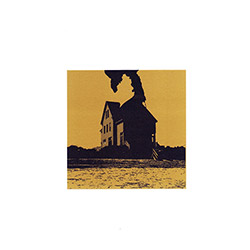
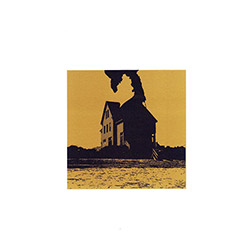

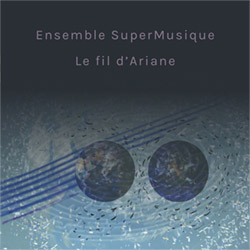
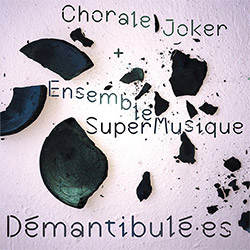

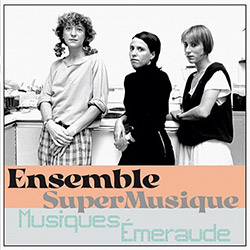
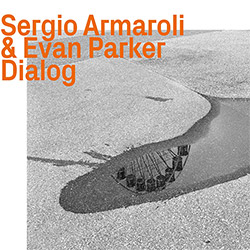

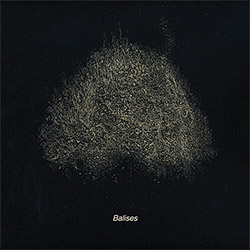




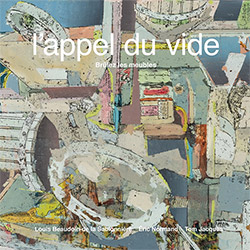

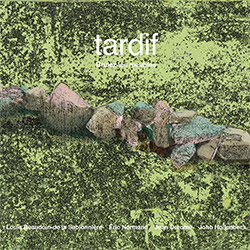
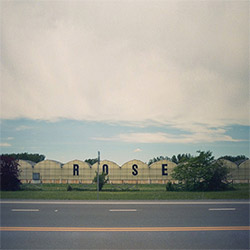
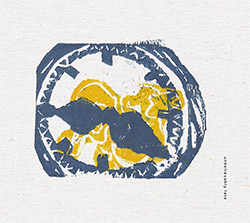
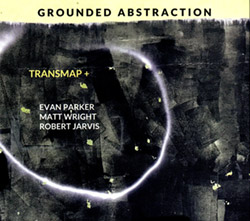
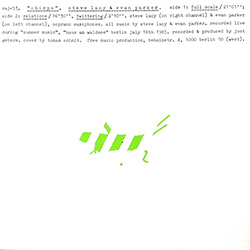


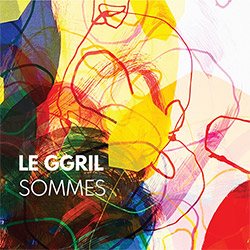
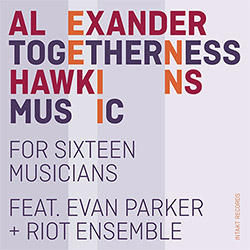
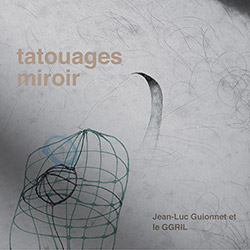



![Eternities: Rides Again [CASSETTE]](https://www.teuthida.com/productImages/misc4/36247.jpg)

![Lopez, Francisco: Untitled (2021-2022) [2 CDs]](https://www.teuthida.com/productImages/misc4/36438.jpg)




![Eventless Plot | Haarvol: The Subliminal Paths [CASSETTE + DOWNLOAD]](https://www.teuthida.com/productImages/misc4/36232.jpg)












![Eventless Plot | Francesco Covarino: Methexis [CASSETTE + DOWNLOAD]](https://www.teuthida.com/productImages/misc4/36231.jpg)

![Brown, Dan / Dan Reynolds: Live At The Grange Hall [unauthorized][CASSETTE]](https://www.teuthida.com/productImages/misc4/36245.jpg)





![Das B (Mazen Kerbaj / Mike Majkowski / Magda Mayas / Tony Buck): Love [VINYL]](https://www.teuthida.com/productImages/misc4/36329.jpg)


![Hemphill Stringtet, The: Plays the Music of Julius Hemphill [VINYL]](https://www.teuthida.com/productImages/misc4/36409.jpg)



![Halvorson, Mary Septet: Illusionary Sea [2 LPS]](https://www.teuthida.com/productImages/misc4/17952.jpg)




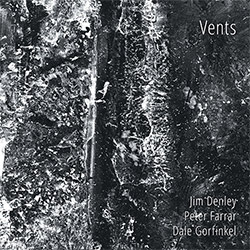
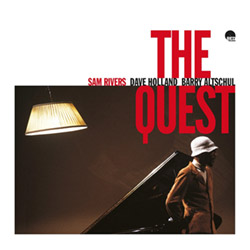
![Re-Ghoster Extended: The Zebra Paradox [VINYL]](https://www.teuthida.com/productImages/misc4/36204.jpg)
![FDF Trio: Possibility And Prejudices From Within A Cup [VINYL]](https://www.teuthida.com/productImages/misc4/36205.jpg)
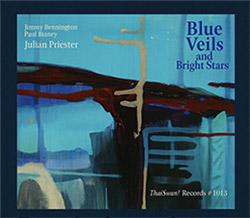

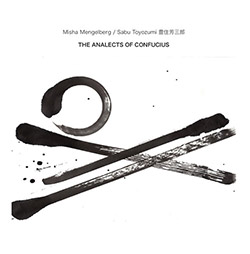

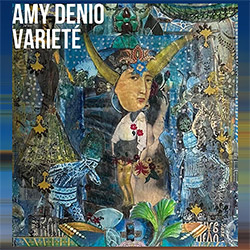



![Money : Money 2 [2 CDs]](https://www.teuthida.com/productImages/misc4/35894.jpg)




![Klinga, Erik: Elusive Shimmer [VINYL]](https://www.teuthida.com/productImages/misc4/36258.jpg)
![CHANGES TO blind (Phil Zampino): Volume 9 - I Wave on a Fine Vile Mist [CD + DOWNLOAD]](https://www.teuthida.com/productImages/misc4/36061.jpg)

![Wallmart / Rubbish: Asset Protection [split CD]](https://www.teuthida.com/productImages/misc4/35900.jpg)


![+Dog+: The Family Music Book Vol. 5 [2 CDs]](https://www.teuthida.com/productImages/misc4/35897.jpg)
![Kuvveti, Deli : Kuslar Soyledi [CASSETTE w/ DOWNLOAD]](https://www.teuthida.com/productImages/misc4/36107.jpg)

![Nakayama, Tetsuya: Edo Wan [CASSETTE w/ DOWNLOAD]](https://www.teuthida.com/productImages/misc4/36105.jpg)




![Yiyuan, Liang / Li Daiguo: Sonic Talismans [VINYL]](https://www.teuthida.com/productImages/misc4/35957.jpg)






![Palestine, Charlemagne / Seppe Gebruers: Beyondddddd The Notessssss [VINYL]](https://www.teuthida.com/productImages/misc4/36206.jpg)
![Palestine, Charlemagne / Seppe Gebruers: Beyondddddd The Notessssss [NEON GREEN VINYL]](https://www.teuthida.com/productImages/misc4/36207.jpg)

![Laubrock, Ingrid: Purposing The Air [2 CDs]](https://www.teuthida.com/productImages/misc4/35639.jpg)

![Yoko, Ono / The Great Learning Orchestra: Selected Recordings From Grapefruit [2 CDs]](https://www.teuthida.com/productImages/misc4/35841.jpg)









![Zorn, John / JACK Quartet: The Complete String Quartets [2 CDs]](https://www.teuthida.com/productImages/misc4/35609.jpg)

![Lonsdale, Eden: Dawnings [2 CDs]](https://www.teuthida.com/productImages/misc4/35480.jpg)



![Sorry For Laughing (G. Whitlow / M. Bates / Dave-Id / E. Ka-Spel): Rain Flowers [2 CDS]](https://www.teuthida.com/productImages/misc4/35985.jpg)

![Rolando, Tommaso / Andy Moor : Biscotti [CASSETTE w/ DOWNLOADS]](https://www.teuthida.com/productImages/misc4/36106.jpg)


![Electric Bird Noise / Derek Roddy: 8-10-22 [CD EP]](https://www.teuthida.com/productImages/misc4/35970.jpg)








![Elephant9 : Mythical River [VINYL]](https://www.teuthida.com/productImages/misc4/34624.jpg)



![Elephant9 with Terje Rypdal: Catching Fire [VINYL 2 LPs]](https://www.teuthida.com/productImages/misc4/35355.jpg)
![Deerlady (Obomsawin, Mali / Magdalena Abrego): Greatest Hits [VINYL]](https://www.teuthida.com/productImages/misc4/34876.jpg)







![Surplus 1980: Illusion of Consistency [CD]](https://www.teuthida.com/productImages/misc4/35069.jpg)
![Staiano, Moe: Away Towards the Light [VINYL + DOWNLOAD]](https://www.teuthida.com/productImages/misc4/35037.jpg)
![Coley, Byron: Dating Tips for Touring Bands [VINYL]](https://www.teuthida.com/productImages/misc4/17906.jpg)

![Lost Kisses: My Life is Sad & Funny [DVD]](https://www.teuthida.com/productImages/misc4/lostKissesDVD.jpg)